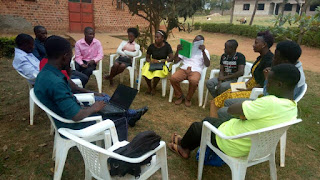Public meetings bring diverse groups of stakeholders together for a specific purpose. Public meetings are held to engage a wide audience in information sharing and discussion. They can be used to increase awareness of an issue or proposal, and can be a starting point for, or an ongoing means of engaging, further public involvement. When done well, they help build a feeling of community.
Meetings can be virtually any size and can be used for any purpose from providing information up to consensus building. Public meetings are familiar, established ways for people to come together to express their opinions, hear a public speaker or proposed plan, engage in shared learning about a topic, or work together to develop solutions. Public meetings do not have to follow any specific script or agenda. They can be designed to meet the specific needs of the project, agency, and stakeholders. The main advantage of public meetings is the ability for stakeholders to listen to and talk to each other, not just the agency.
While most public meetings are larger and are intended to attract the full range of stakeholders in a community, smaller public meetings can also be held with like-minded stakeholders. Focus groups or dialogue meetings can be made up of people with common concerns who may not feel confident speaking up in a larger public gathering (e.g. women, those who speak English as a second language, indigenous groups). By creating a safe venue, these people can speak comfortably together, share common issues and a common purpose. The findings from smaller meetings can be presented at larger public meetings or in summary reports, giving a “voice” to those in the community who are unable to speak up in a larger setting.
Advantages
• Introduces a project or issue to a community
• Provides all participants a chance to voice their concerns, issues, and ideas
• Disseminates detailed information and decisions throughout the community
• Provides opportunities for exploring alternative strategies and building consensus
• Can create consensus for action on complex issues that require broad-based community input
Challenges to Consider
• Unless carefully planned and well facilitated, those perceived as having the most power within the community, or those who are most articulate and domineering in their verbal style can dominate the meeting and overwhelm the ability of other voices to be heard
• Even when well attended, meetings will only reach a very small segment of the community that require information and whose input could be extremely valuable in crafting solutions
• Participants may not come from a broad enough range of interests to represent the entire community, providing a skewed view of what the public really thinks
• Unless well designed and facilitated, conflicts may be deepened rather than explored and potentially resolved
• Community members may not be willing to work together



No comments:
Post a Comment